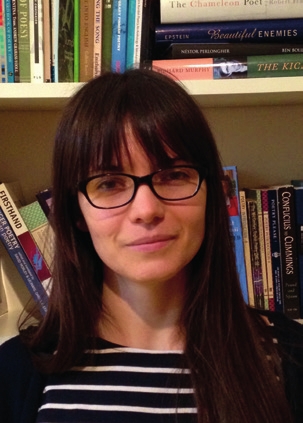Let Your Pupils Know That Their Voices Are Worth Hearing

Adding an element of competition to the process can take students’ self-penned poetry to a new level, suggests Ruth Smith…

- by Ruth Smith

Reading and analysing a poem without having ever crafted one yourself is rather like reading a Shakespeare play without ever seeing it performed.
Nothing compares to the act of writing a poem in encouraging pupils to develop their critical understanding and interest in the form, alongside developing their own sense of creativity.
One incentive to encourage a reluctant class to closely write, edit and perfect their own poetry is a poetry competition. Creating work that is geared towards a specific objective is an exciting challenge, and can really galvanise a young person’s creative ambitions. Competition entries could be based around one particular idea or theme, or around an exemplar poem, giving a focus for the young writers and a chance for their talents to shine.
Defining moments
Winning a poetry competition or being commended is a defining moment for many young writers. Seeing their talent acknowledged in this way often gives them the assurance to continue writing. National or even international recognition allows them to recognise that their hard work is worthwhile and, perhaps most importantly, that their voice is relevant, interesting and valued.
“It was winning the Foyle aged 17 that set me on this path […] [competitions] can change utterly how you see your work”, says Sarah Howe, former Poetry Society Young Poet of the Year and winner of the 2015 T.S. Eliot Prize for ‘Loop of Jade‘.
Whether they win or not, writing for competitions makes pupils better writers.Competitions help them to interpret and express their feelings better, to think much more broadly, to act as critic by putting themselves in the place of the reader or judge, and to develop essential editing skills.
The use of poetry competitions in the classroom challenges pupils to consider their own writing in the context of that of their peers. It allows them to compare their thoughts and opinions, to consider and better understand their individual differences, and to share ideas about content and style. Given the opportunity to think about and discuss their own and one another’s work, pupils can become much more rounded and sensitive young writers.
Everyone wins
Poetry competitions can also ignite debates and whip up enthusiasm in a classroom. If you are looking to breathe new life into the curriculum, or just break it up now and then, a poetry competition can be a useful interlude to freshen up the mind. The chance to explore the work of writers who might not be part of the curriculum is the equivalent of a brisk walk in the fresh air after sitting at your desk all day. It brings a different form of learning into the classroom and allows pupils to see poets and poetry as rich and rewarding resources which exist independently of the syllabus.
There are many poets to look to for inspiration, but why confine yourself and your students to established poets? Poetry is current, dynamic and diverse, and exists in an almost endless variety of forms. Bring in music lyrics, song writers, rap artists, emerging and young poets to stimulate young people’s own writing. You might find that Skepta, Kate Tempest, or Caroline Bird bring out the most extraordinary responses in your pupils.
It’s not just the pupils that benefit from competitions. Most competitions provide teachers with new and useful teaching resources, such as lesson plans and innovative ideas for classroom activities. The Foyle Young Poets of the Year Awards asks teachers to write lesson plans each year, examining winning poems by young people. This offers fresh insights into how to get to grips with completely new poetry in the classroom and also encourages teachers to inspire entries from their own pupils.
Winning a poetry prize can have a real motivational effect on the rest of the class and the school. It can inspire confidence in other pupils that they too could win a competition; it emphasises the importance of individual creativity in the daily life of the school, and it lets pupils know that their voices are worth hearing.
It also shows that poets aren’t just people who exist in the pages of books – they might be the person sitting next to them in assembly!
Ruth Smith is education officer at The Poetry Society; for more information, visit poetrysociety.org.uk or follow @poetrysociety










